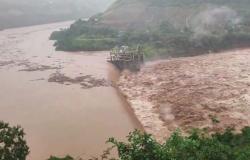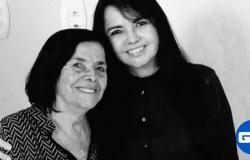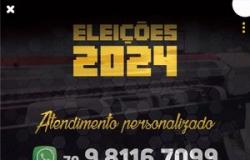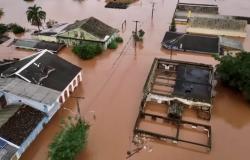Still living on the margins of the rights granted to them by the Brazilian Constitution, the original peoples fight tirelessly for the realization of their rights, such as health services, education and respect for their cultural celebrations.
In addition to all these problems, an invisible part of these people calls for visibility and recognition. These are the non-original people of Tocantins, recently declared or without demarcated territories in the state. The right to recognition is still the main struggle of non-Tocantins indigenous people and has become a narrative in cinematographic production.
The Web series “WEWE: Stories of Recently Declared Indigenous People in Tocantins, from the perspective of the Mosaicos Tocantins program” is a production by doctoral student in cinema and journalist Mariah Soares, which will show the history of recently declared indigenous people or those who do not yet have territories demarcated in Tocantins, being the Kanela, Atikum Umã,
Ava Canoeiro, Krahô Takaywrá, Guarani and Pankararu.
The recordings began last weekend in Gurupi with the Atikum Umã people, in Aldeia Alto do Atikum Umã and Pankararu. The audiovisual production will show, through testimonies from indigenous people, the struggles, challenges and how the recognition of their identity relates to their future. The web series will have five episodes scheduled for release in the second half of this year, on display open to the public and also on open TV, on RedeTV’s Mosaicos do Tocantins program.
Web series
The project’s general director states that audiovisual production is important to protect and give visibility to the importance of recognizing these people who are not originally from Tocantins. “The web series will show the voice of these people, who have rights guaranteed in the Brazilian constitution”, argues Mariah, adding that she opted for the documentary genre and “the stories will be revealed by the protagonists of their stories themselves, who represent resistance, many of them with a resignification of cultures, but they remain firm in defending their ethnic identity”, he explains.
Mariah also highlights that the proposal is, in addition to giving visibility, the web series seeks to contribute to ensuring respect for these cultures that are part of the formation of Brazilian society”.
The initiative relies on consultancy and research by the indigenous Thorkã Kanela (Célio). According to him, this recognition, in terms of title, appointment and documentation, came late due to competent public policies, but there is still hope for a better world. “We are not what, unfortunately, many history books still tend to portray. We are not among the few public policy alignments that still persist for the villages, many of us do not even have a village or territory, but we are indigenous”, he declares.
In fact, the name of the project was created by Thorkã Kanela. According to him, it reflects the subjective way of understanding and seeing the world, as they define themselves as WEWE, butterfly in Portuguese. “I compare us to the butterfly, as it represents a being that goes through transformations throughout its life. First it (butterfly) is born as a caterpillar and then it transforms into a beautiful butterfly admired by everyone. As a caterpillar, she is despised by many. There are people who even panic when they see it. It is vital to share and give visibility to these stories and feelings, to promote respect and understanding, not only among indigenous peoples, but mainly among non-indigenous people”, expresses the consultant.
The project’s executive producer, Andrea Lopes, states that, more than recording and documenting the history and resilience of these people for future generations, the proposal is to contribute to the inclusion of these indigenous people in public policies for the indigenous peoples of Tocantins. “Public policies are already scarce for officially declared indigenous peoples since their emergence, but are practically nil for newly declared peoples. So, the proposal is to contribute to the recovery of their identity, as visibility will strengthen their self-perception as an individual”, she concludes.
Project
A realization of the Mosaicos do Tocantins program, with general direction, script and interviews by Mariah Soares, the project is sponsored by the notice 023-Audiovisual Tocantins, Module III, of the Paulo Gustavo Law (LPG), via the State Secretariat of Culture, of the Government of the State of Tocantins.
Proponent
She is a PhD student in Cinema from USP/Diversitas, a Master in Cinema from the University of Beira Interior (UBI), Covilhã, Portugal, and a degree in Social Communication/Journalism and in Documentary Cinema from the Escuela de Cine y Artes Audiovisual (ECA) in La Paz ( Bolivia). She is the creator of the TV project Mosaicos do Tocantins, currently airing on Rede TV and a script teacher on the Specialization course in Audiovisual Documentation (UFT). In media outlets, she served as producer, reporter and TV presenter. She is a screenwriter and producer of the audiovisual project “Knowing and Preserving the Indigenous Cultures of Tocantins” (1999), a documentary about the Iny (Karajá) indigenous people that won the Rodrigo Melo Franco de Andrade (MINC) award.
She was vice-president of the Tocantins Cultural Foundation and director of Promotion of Racial Equality and Defense of Minorities, at the Secretariat of Citizenship and Justice, when she held the 1st Indigenous Forum of Tocantins, to develop public policies aimed at the indigenous peoples of Tocantins. She participated in the Indigenous Popular Cinemas Without Borders Course in 2008.
Datasheet:
Realization: Tocantins Mosaic Program
General Director and Screenplay: Mariah Soares
Co-direction and consultancy: Célio Kanela
Co-production and Photography Direction: Krahô Filmes
Research and Interviews: Mariah Soares and Célio Kanela
Executive Production: Andrea Lopes
Press Office: Cinthia Abreu
Administration and Accountability: Andrea Lopes and Cinthia Abreu
Production Assistant: Marcos Kastro and Ana Cláudia Cardoso
Field Producers in communities: Lorrayne Atikum, Ana Luísa Kanela, Genilson Pankararu and Ivan Guarani
—
Tags: Web series show history challenges newly declared indigenous people demarcated territories Tocantins
--






